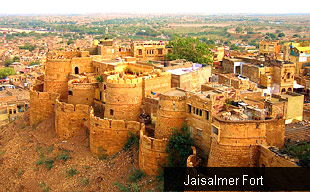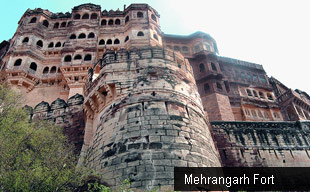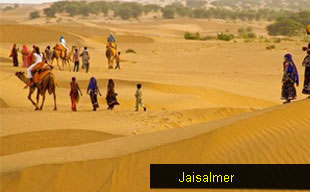
 Mostly visited for – Jaipur, Ajmer, Pushkar (a village around Brahma Temple & a holy lake), Bikaner, Bharatpur Bird Sanctuary, Ranthambore Tiger Reserve, Jaisalmer, Jodhpur Mount Abu, Udaipur.
Mostly visited for – Jaipur, Ajmer, Pushkar (a village around Brahma Temple & a holy lake), Bikaner, Bharatpur Bird Sanctuary, Ranthambore Tiger Reserve, Jaisalmer, Jodhpur Mount Abu, Udaipur.
Adventure
Camel Safari: Jaisalmer, Jodhpur, Bikaner, Barmer
Horse Safari: Around Udaipur
Jeep Safari: Around Jodhpur
Hot Air Ballooning: Jaipur, Ranthambore and Pushkar
Water Sports: Siliserh Lake near Alwar, Nakki Lake, Mt. Abu, Jausamand Lake (near Udaipur)
Polo: Polo, Club, Jaipur
Trekking: Mt. Abu and Mewar Belt
Major Cities – Jaipur, Jodhpur, Bikaner, Jaisalmer, Udaipur, Ajmer, Mandawa, Shekhawati
Weather - Summer: April to June, Monsoon: July to September, Winter: October to March.
Connectivity
By Air- The state has three major airports namely Jaipur, Udaipur and Jodhpur.
By Rail- Almost all tourist destinations are well connected by rail. The best way to experience the royalty of Rajasthan is to travel by luxury tourist trains “Palace on Wheels” and “Royal Rajasthan on Wheels”.
By Road- A well laid network of National and State Highways covers the state extensively.
History, Geography and Culture of Rajasthan
Rajasthan abounds on the history, traditions, culture and artistic legacy of India. The resilience of this royal state can be found in the history as well. During the ancient era, parts of Rajasthan served as a backdrop for one of the world’s first and oldest Indus Valley Civilization. Kalibangan in Hanumangarh, Rajasthan served as a major provincial capital during this ancient civilization.
The tribal settlements of Rajasthan also comprise the rich history of the region. Traditionally the tribes like Meenas, Gurjars, Bhils, Rajputs, Charans, Jats, Yadavs, Bishnois, etc hugely contributed in keeping the legacy of Rajasthan alive in modern times.
These tribes fought for their homeland, acted as a barrier against foreign invaders and established Gurjara Pratihara Empire during 700 CE. This period also saw the Rajput families rising to prominence in the form of separate kingdoms in the form of Rajputana. Jodhpur, Bikaner, Udaipur, and Jaipur were some of the main Rajput states.
These royals with their commitment towards land and never say die attitude defined the concept of chivalry and love towards the motherland. Before the rule of Akbar, no foreign power could actually assert the control over this royal land. Their courage, valour and fighting prowess made them superior among the other contemporary kings. Under Mughal Emperor Akbar’s tactical diplomacy, Rajasthan became a unified province. Post disintegration of Mughals, Rajasthan saw the influx of Marathas. The forts, palaces and heritage havelis of the medieval era dot the landscape of Rajasthan and provide a wide panoramic backdrop for the history in the making.
 Some Rajput kings thereon concluded treaties with British in the modern Indian phase, wherein they accepted British sovereignties in return for local autonomy and protection from the Marathas. This exercise, thus gave rise to princely states of Rajputana. Post independence, it took seven stages to reunite the 19 princely states under Rajasthan.
Some Rajput kings thereon concluded treaties with British in the modern Indian phase, wherein they accepted British sovereignties in return for local autonomy and protection from the Marathas. This exercise, thus gave rise to princely states of Rajputana. Post independence, it took seven stages to reunite the 19 princely states under Rajasthan.
Geographically, the state is unique in India, due to the contrasting presence of the Great Thar Desert and Aravalli range, which overlook many cities of the state. Sharing its borders with Haryana, Uttar Pradesh and Gujarat in India and Pakistan, Rajasthan is the largest Indian state area wise. Filled with numerous contrasts, the state is known for hot baked deserts, cool hill stations, thorn scrub forests and numerous lakes. Deserts of the state have their own rugged charm where camel safaris can be availed easily. The arid scrublands of the state also host vivid wildlife including elusive tigers, and other migratory birds. There are four national park and wildlife sanctuaries namely, Keoladeo National Park of Bharatpur, Sariska Tiger Reserve of Alwar, Ranthambore National Park of Sawai Madhopur, and Desert National Park of Jaisalmer, that rule this royal state.
But it’s the people and the culture that makes Rajasthan so inviting, warm, colourful and full of life. The artistic traditions here illustrate the ancient Indian way of life based on rich folk culture. This vividly colourful culture of Rajasthan is based on the folk music, dance, cuisine, arts and crafts, dresses and architecture. The jovial Rajasthanis believe in making every day special with the abundant adherence of inviting customs and cultural traditions. May be this is the reason why the fairs, festivals, folklores, puppetry here receive such favour and fascination from every tourist.

Religion - Hindus, Islam, Jain
Festivals
Camel Festival (January, Bikaner)
Desert Festival (Jan/Feb, Jaisalmer)
Elephant Festival (Mar/Apr, Jaipur)
Pushkar Fair (Nov, Pushkar)
Eat – Daal-bati Churma, Ker Sangari, Kachori, Mirchi Bada, Gatte ki Sabzi, Bajara, Besan Chakki, Lal Maas, Pickles and Chutneys, Rabri, Maalpua, Ghewar
Buy – Meenakari, Gems and Jewellery, Miniature Paintings, Marble Carving/ Painting, Bandhani, Embriodery, Hand Block Prints, Carpets, Leatherware, Lac Artifacts, Pottery, Puppets, Wooden Artefacts, Furniture-quilts-Kota Doria Sarees
Hotels – The inviting standards of Rajasthan has made the state renowned for its special hospitality experience. In fact, here a tourist is sure to receive dollops of care and affection during his stay here. In order to make the stay even more special, Rajasthan has opened the doors of medieval forts, palaces and havelis. A stay in such heritage structures surely transports a traveller to the royal era of kings and queens.
